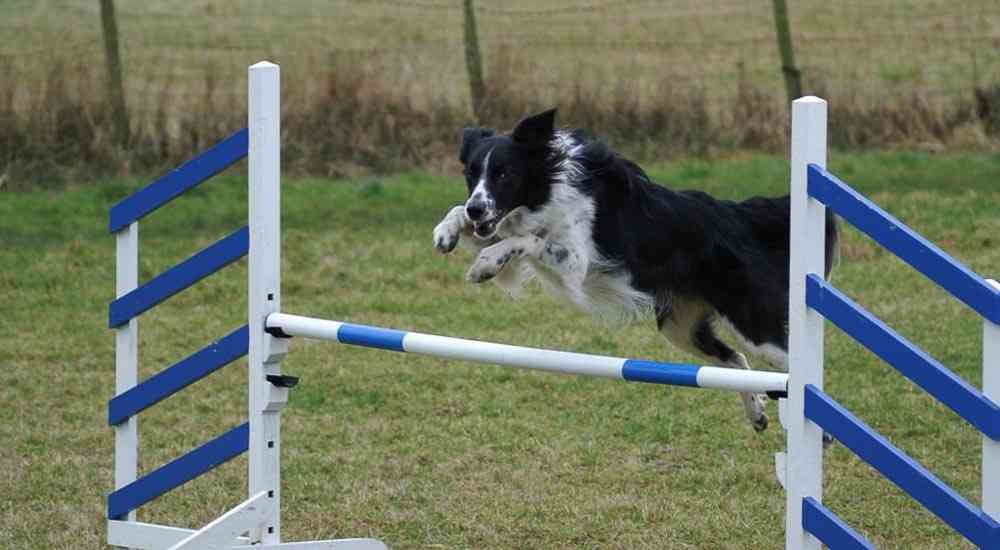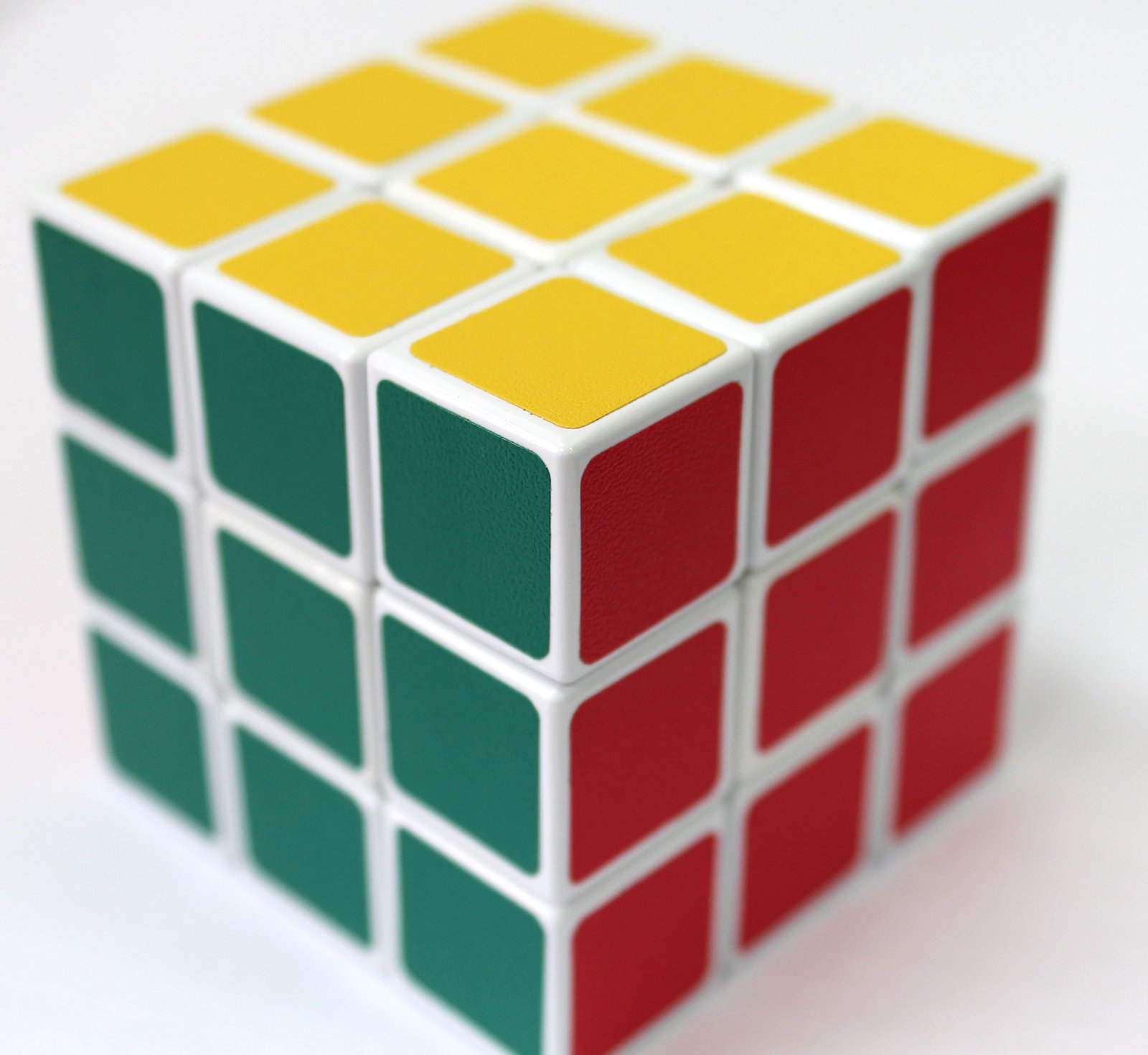Dogs, with their zestful spirits and unwavering enthusiasm, hold a special place in our hearts and homes. These endearing creatures have an innate need for mental stimulation, just as we humans do. While their wagging tails and playful antics bring joy to our lives, it is crucial to carve out spaces for them to exercise their ever-curious minds. Enter dog training puzzle toys: the key to unlocking a world of cognitive challenge for our four-legged companions. In this article, we will delve into the captivating realm of these innovative gadgets, exploring their immense role in providing mental stimulation to our furry friends. Prepare to unravel the mystery of why dog training puzzle toys have become an indispensable tool in nurturing the intellectual prowess of our canine companions.
Table of Contents
- The Benefits of Mental Stimulation for Dogs through Puzzle Toys
- Choosing the Right Puzzle Toy: Factors to Consider
- How Dog Training Puzzle Toys Promote Cognitive Development
- Top Recommendations for Dog Training Puzzle Toys
- Tips for Maximizing Mental Stimulation with Puzzle Toys
- Q&A
- Wrapping Up

The Benefits of Mental Stimulation for Dogs through Puzzle Toys
Dogs are not only our loyal companions but also intelligent creatures who require mental stimulation to keep them engaged and happy. One effective way to provide this mental stimulation is through puzzle toys specifically designed to challenge their cognitive abilities. These toys offer a wide range of benefits for our furry friends, helping to keep their minds sharp and entertained.
1. Prevents Boredom and Destructive Behavior: Puzzle toys are a great solution to combat boredom in dogs, especially when left alone for extended periods. Engaging their minds with interactive puzzles keeps them entertained, reducing the likelihood of destructive behavior due to frustration or restlessness.
- Example: Curious Fido just can’t resist the allure of his brand-new puzzle toy, he excitedly nudges it with his nose and watches as treats fall out. This mental challenge not only keeps him away from chewing on your favorite shoes but also satisfies his natural instinct to forage.
2. Enhances Problem-Solving Skills: Puzzle toys provide a mental workout for dogs, giving them the opportunity to develop and enhance their problem-solving skills. As they navigate through the puzzles to access their treats, they learn to strategize, use their senses, and think critically.
- Example: Sasha, a quick-witted Border Collie, skillfully strategizes her moves to unlock various compartments of her puzzle toy. By doing so, she sharpens her cognitive abilities and gains a sense of accomplishment each time she successfully solves the puzzle.
3. Builds Confidence and Self-Esteem: Successfully completing a puzzle toy can boost a dog’s confidence and self-esteem. When they conquer challenging tasks and receive rewards, they feel a sense of achievement, reinforcing a positive mindset.
- Example: Lucky, a timid rescue dog, cautiously approaches his puzzle toy at first. With each successful puzzle-solving session, his confidence grows, transforming him into a more self-assured pup, ready to conquer new challenges.
Providing mental stimulation through puzzle toys not only entertains our furry companions but also supports their overall well-being by keeping them mentally sharp, content, and emotionally fulfilled.

Choosing the Right Puzzle Toy: Factors to Consider
When it comes to selecting a puzzle toy for yourself or your loved ones, several factors should be taken into consideration. Keep in mind these key elements to ensure you find the perfect puzzle toy that ticks all the boxes:
- Difficulty level: One of the most important factors to consider is the puzzle toy’s difficulty level. Make sure to choose a puzzle that matches the intended player’s skill level. Whether it’s a beginner, intermediate, or advanced puzzle solver, finding the right challenge will ensure a fun and engaging experience.
- Theme and design: Puzzle toys come in a wide variety of themes and designs. From captivating landscapes to intricate patterns, choose a puzzle that aligns with the player’s interests and preferences. Whether they enjoy nature-inspired scenes, vibrant abstract art, or nostalgic images, a visually appealing puzzle can greatly enhance the overall enjoyment.
- Piece count: The number of puzzle pieces is another factor to consider. Smaller puzzles with fewer pieces are generally suitable for beginners or those who prefer a quicker solving time. On the other hand, larger puzzles with higher piece counts offer a more challenging and time-consuming experience. It’s essential to consider the available space and the level of commitment the player is willing to invest in solving the puzzle.
- Quality and materials: Pay attention to the puzzle toy’s quality and materials. Opt for puzzles made from durable materials to ensure they can withstand multiple uses. Well-cut pieces and a sturdy build will make for a more satisfying puzzling experience and ensure that the puzzle can be enjoyed for years to come.
By considering these factors, you’ll be well-equipped to select the perfect puzzle toy that suits your needs. Embrace the challenge and indulge in the relaxation and satisfaction that these captivating brain-teasers offer!

How Dog Training Puzzle Toys Promote Cognitive Development
Enhancing Cognitive Development through Dog Training Puzzle Toys
Keeping your dog mentally stimulated is just as important as physical exercise. Dog training puzzle toys are an excellent way to engage your furry friend’s mind, promoting their cognitive development in a fun and interactive manner. These innovative toys offer a range of benefits that go beyond mere entertainment, encouraging problem-solving skills and sharpening their cognitive abilities.
- Stimulating Problem-Solving Skills: Dog training puzzle toys present challenges that require dogs to strategize and think critically. By navigating through various levels of complexity, your pet will learn how to analyze and solve problems, keeping their brain active and engaged.
- Building Focus and Concentration: As dogs interact with puzzle toys, they need to focus on the task at hand, teaching them patience and concentration. This kind of mental exercise is particularly beneficial for highly energetic dogs who may struggle with impulse control or excessive energy.
- Promoting Memory and Learning: Many puzzle toys utilize memory-based challenges, which require dogs to remember the sequence of actions or locations of hidden treats. By engaging in these activities regularly, dogs can enhance their memory and cognitive flexibility.
Investing in a variety of dog training puzzle toys provides an enriching and fulfilling experience for your four-legged companion. Not only will they have loads of fun, but they will also reap the numerous cognitive benefits that these toys offer. So, go ahead and introduce your dog to the world of puzzle toys, making their playtime both entertaining and intellectually stimulating.

Top Recommendations for Dog Training Puzzle Toys
Dogs are intelligent creatures that require mental stimulation to keep them happy and engaged. One way to provide this mental exercise is through dog training puzzle toys. These toys not only entertain your furry friend, but also help develop their problem-solving skills and enhance their overall cognitive abilities. Here are some :
- Interactive Treat Dispensing Toys: These toys require your dog to figure out how to access the hidden treats inside. With varying difficulty levels, they keep your pup entertained for hours and encourage their natural foraging instincts.
- Maze Toys: Maze toys challenge your dog’s cognitive skills as they navigate through twists and turns to find hidden treats. They provide mental stimulation while keeping your dog physically active.
- Puzzle Boards: Puzzle boards feature different compartments and sliders that your dog must manipulate to uncover treats. They offer a fun and interactive way to engage your pup’s problem-solving skills.
- Hide-and-Seek Toys: These toys involve concealing treats or toys inside various compartments or pockets. Your dog will have a blast using their nose and paws to search for and retrieve their rewards.
Incorporating these dog training puzzle toys into your furry friend’s routine can provide mental stimulation, prevent boredom, and even alleviate behavioral issues. They are a great way to strengthen the bond between you and your pup while keeping them mentally sharp and happy.
Tips for Maximizing Mental Stimulation with Puzzle Toys
If you are looking to give your furry friend a mental workout while keeping them entertained, puzzle toys are a fantastic choice. These engaging toys not only provide hours of fun but also offer mental stimulation for your pets. Here are some helpful tips to make the most out of puzzle toys:
- Vary the difficulty: Start with easier puzzles to build your pet’s confidence and gradually increase the difficulty level. This ensures they stay challenged and motivated to solve the puzzles.
- Rotate the toys: To avoid boredom, rotate different puzzle toys regularly. This introduces novelty and keeps your pet mentally engaged by presenting new challenges.
- Reward their efforts: When your pet successfully solves a puzzle, reward them with treats, praise, or a favorite toy. This positive reinforcement encourages them to continue engaging with the puzzle toys.
- Introduce interactive puzzles: Consider interactive puzzle toys that require your pet to interact with you or other animals. This not only stimulates their mind but also strengthens the bond between you and your furry friend.
- Supervise playtime: It’s important to supervise your pet while they play with puzzle toys to ensure they use them safely. This allows you to step in if they get stuck or frustrated, providing assistance when needed.
By following these tips, you can provide your pet with a mentally stimulating and rewarding experience. Puzzle toys are a fantastic tool to keep your pet’s mind active, improving their cognitive skills while offering hours of entertainment.
Q&A
What are dog training puzzle toys?
Dog training puzzle toys are interactive toys that stimulate a dog’s mental and physical abilities. These toys typically have hidden compartments or pockets where treats or toys can be hidden, encouraging dogs to engage in problem-solving activities in order to retrieve the reward.
How do dog training puzzle toys benefit dogs?
Dog training puzzle toys provide mental stimulation for dogs, which is crucial for their overall well-being. These toys engage their minds, enhance problem-solving skills, and help to prevent boredom and destructive behaviors that can result from the lack of mental stimulation.
What are the effects of mental stimulation on dogs?
Mental stimulation is essential for dogs as it helps to keep their minds sharp and active. It can prevent cognitive decline in older dogs, reduce anxiety and stress levels, and promote positive and well-balanced behavior. Regular mental stimulation through puzzle toys can lead to happier, healthier dogs.
Are dog training puzzle toys suitable for all breeds?
Yes, dog training puzzle toys are suitable for all breeds, although different toys may be more appropriate for different sizes and energy levels. Some toys are designed to be more challenging, while others are simpler and suited for beginners. It’s essential to choose a toy that matches your dog’s size, age, and abilities.
How can I introduce dog training puzzle toys to my dog?
When introducing a dog to puzzle toys, start with simpler toys and gradually increase the difficulty level as they become familiar with the concept. Show them how to interact with the toy initially, and reward their progress to keep them motivated. Patience and positive reinforcement are key to successful training with puzzle toys.
Can dog training puzzle toys replace physical exercise?
While dog training puzzle toys provide mental stimulation, physical exercise is equally important for a dog’s well-being. Puzzle toys complement physical exercise by engaging their minds, but they should not replace regular physical activity such as walks or interactive play sessions.
Are there any safety considerations when using dog training puzzle toys?
When using dog training puzzle toys, ensure the toys are made with pet-safe materials and do not have any small parts that could be swallowed. Always supervise your dog while they are playing with puzzle toys, especially when they are new to the concept, to prevent any potential hazards and ensure a safe experience.
Wrapping Up
As we bid our heartfelt farewell, it is evident that the world of dog training puzzle toys holds boundless avenues for mental stimulation. These captivating playmates have acted as accomplices in unlocking the hidden potential of our beloved furry friends, arousing their curiosity and fueling their intelligence.
Like secret detectives, these charming toys have slyly slipped into the lives of our four-legged companions, challenging them to overcome mental hurdles and providing them with an exhilarating sense of accomplishment. Each twist and turn of the puzzle has proven to be a stepping stone towards sharpening their cognitive abilities and enriching their lives.
These toys not only serve as a source of entertainment but also act as mentors, teaching our furry friends essential skills such as problem-solving, concentration, and patience. As our loyal companions eagerly explore these puzzles, they are unknowingly embarking on a journey of self-discovery, uncovering their untapped potential in a world where their hunger for mental exercise is all but satiated.
While our adventures in this enchanting realm come to a close, we must remember that mental stimulation is not limited to the realm of dog training puzzle toys alone. We must continue to explore various avenues to ensure the well-being of our four-legged companions, engaging them in activities that challenge their minds and keep them on their paws.
In our pursuit of mental stimulation for our furry friends, let us embrace the wonders of nature, embark on thrilling adventures, and engage in interactive play that strengthens the bond between human and canine. Together, let us unlock the full potential of our beloved pets, enriching their lives with the joy of exploration and the satisfaction of overcoming challenges.
So, as we bid farewell to this captivating world of dog training puzzle toys, let us remember that our furry friends are more than just pets. They are curious souls longing for mental nourishment, and it is our duty to provide them with the tools and opportunities to thrive. Let us be their guides, their ever-faithful companions in this journey of knowledge, ensuring that their minds are as sharp as their love for us.
As an affiliate, my content may feature links to products I personally use and recommend. By taking action, like subscribing or making a purchase, you’ll be supporting my work and fueling my taco cravings at the same time. Win-win, right?
Want to read more? Check out our Affiliate Disclosure page.